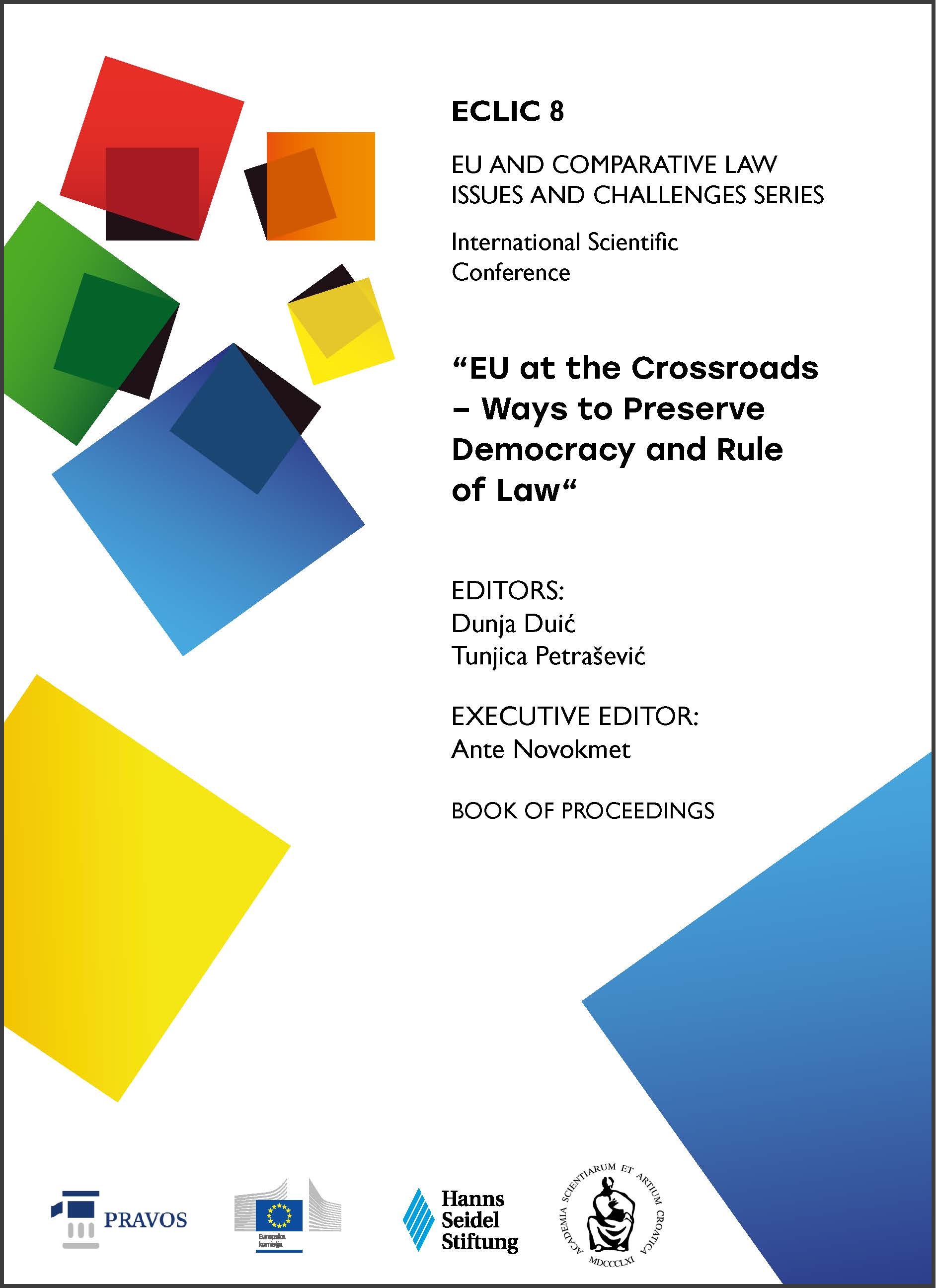THE DANGER OF ORGANIZED CRIME IN THE AREA OF FALSIFICATION OF MEDICINES AND MEDICAL PRODUCTS (PROFIT VS. RIGHT TO HEALTH)
DOI:
https://doi.org/10.25234/eclic/32273Abstract
Falsification of medicines and medical products as major risk to human life and health is new global threats facing the international community. By its nature, counterfeiting medicines and medical products as a very lucrative "business" falls under the term of organized crime. Precisely because of the large profits it is considered to be a new danger and one of the priorities for all countries in the fight against organized crime, especially because of its role in financing of terrorism. In the phenomenology of organized crime, represented by criminal associations, of the so-called adaptable or flexible type, the participation of counterfeiting and falsification of medicines and medical equipment is taking on an increasing share. In these organized activities legal entities are increasingly involved, which are companies that, due to profit, have no regard for what most the important goods for the individual or society are. Fake pharmaceutical products endanger not only public and individual health, but also the economy, because they "feed a parallel economy". A global problem is the illegal sale of counterfeit or fake medicines and medical products through websites that are difficult to detect or are the result of fraud by manipulating corporate websites. Although this trade has previously been recognized as a growing danger to human health, the pandemic of the disease COVID-19 has brought "to the light of day" countless glaring cases of organized trade in counterfeit medicines and, moreover, various fake low-quality medical equipment as new opportunities for profit. Enormous quantities of such equipment (protective masks, vaccines, disinfectants, home tests, antimalarial drugs, etc.) have appeared in different modus operandi of criminal trade, from fraud in large shipments, online sales of equipment with fake labels to direct package delivery. The expansion of the online trade in counterfeit pharmaceutical products through the Internet space of the Dark Web has significantly developed organized crime as the so-called "mafia super business". Moreover, illegal and legal markets are often intertwined in many ways. Although international legal frameworks have been established with bodies to combat very dangerous forms of transnational organized crime, such as Interpol, Europol, OLAF, etc., there are a number of difficulties in detecting and prosecuting illegal trade in counterfeit and fake medicines and medical products, especially in developing countries. Given that legal companies are also engaged in this trade, as direct traders or intermediaries, and that the connections between criminal networks facilitate the infiltration of such medical equipment into the legal supply and sales chain, in detection operations it is necessary, in addition to the police, to include the participation of customs, tax, inspection and health authorities. From the perspective of legislation and jurisprudence, this is a demanding challenge for the rule of law and a great risk for fundamental human rights, because the scale of trade, the development of the illegal market and the cross-border cooperation of organized criminal networks with counterfeit medicines and medical equipment represent a significant public health problem. From the perspective of public health danger and global security the problem is so worrying that it has led to the idea of declaring this crime an international crime. This paper will include a presentation of legal frameworks for combating counterfeiting medicines and medical products, as well as the operations of various bodies undertaken with the aim of prosecuting perpetrators. The goal of the treatment of criminal liability in this paper is the investigation of the problems of detection and suppression of an organized network of production and distribution medical counterfeits.
Downloads
Published
How to Cite
Issue
Section
License
Copyright (c) 2024 Nina Mladinić, Šime Jozipović, Marko Perkušić

This work is licensed under a Creative Commons Attribution-NonCommercial 4.0 International License.
Authors retain the copyright on the papers published in the Journal, but grant the right of first publication to the Journal. Papers accepted for publication or already published in ECLIC of the Faculty of Law in Osijek may be published by the author(s) in other publications only with proper notice of its previous publication in ECLIC.


